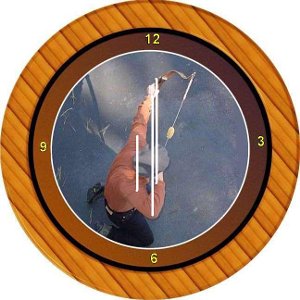I'm sure the 3 Rivers spine tester works as well as any of them. They work by hanging a weight on the arrow shaft and seeing how much it deflects. The more deflection, the weaker the spine. Most people that I know who use wooden arrows make their own, which involves a whole lot more gadgets, of course. If you buy wood arrows already made, then the question arises as to whether the spine advertised is the same as the spine you're reading on your spine tester, since they're using a different spine tester. So it's better to order just a few to start with, and see how the advertised spines compare with the spine readings from your spine tester. You will find quite a bit of variability in both spines and weights when it comes to wood arrows. Which brings up the point that if you're going to shoot wood arrows, a grain scale is also a good thing to have. For your "good" arrows, it would be nice if they were within 5 lbs of spine and 15 grains of weight of each other. Don't be surprised if most of the arrows you order fall outside this range, however. Most people who make their own arrows order maybe a hundred shafts, then weigh and spine them. Out of the hundred shafts, you will probably find several dozen that are reasonably close in grain and weight. Maybe five-ten of the others will be totally unusable because they don't have a straight enough grain and could be dangerous to fire. They make good kindling or plant stakes. The rest will eventually be used for arrows, either for roving or as your standards deteriorate as you use up your "good" arrows and need replacements.
You would hope and think that if you order already made arrows, you would get ones similar to the best shafts you would pick to make yourself. However, I've not found this to be the case, which is why most of us make our own wood arrows. But you do need a lot of stuff: dip tanks, thinner, laquer, points, feathers, glue, fletching jig, nocks, tapering tool, etc.





